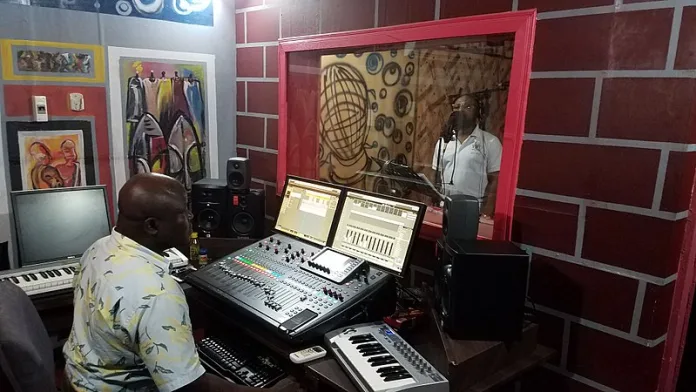Projected Financial Gains for 2024
The Ghanaian music industry has grown significantly over the years, evolving into a multimillion-dollar sector of the economy. According to Statista.com, revenue from streaming and digital stores is projected to reach $4.19 million by the end of 2024. Despite potential gains, the biggest threat to this development is the impact of Ghanaian musicians’ lifestyles on young consumers.
In a study conducted by the E-Journal of Humanities, Arts and Social Sciences (EHASS), the abstract suggested the impact of modern music (Hiplife, Dancehall, Drill, Acrobat) on consumers such as patrons, the youth, and the culture in Ghana. The research indicated the influence of modern music and correlated lifestyles has increased negative social vices, mostly among the youth. Sadly, these social vices have reached its highest peak, and these are vices the Ghanaian culture frowns upon.
In 2023, Ghana sort to address the impact of music artists’ lifestyles on drug abuse, particularly among the youth. Despite the challenges, there has been notable progress in reducing substance abuse. According to the Narcotics Control Commission (NACOC), drug use is a significant public health challenge in Ghana, but the country is making steady progress in reducing its prevalence through various empowerment and preventive measures (Ghana News Agency) (AJOL (African Journals Online)).
List of Ghanaian musicians whose songs prompt actionable content.
Impressively, Ghanaian musicians have used their platform to address social issues, inspire change, and call for action through their music. Notable among these artists and songs that aim to drive societal change and encourage positive attitudes include:

licensed under CC BY https://creativecommons.org/licenses/by-sa/4.0/.
Sarkodie:
“Inflation” (2014): This song addresses economic issues and the high cost of living in Ghana.
“Black Excellence” (2018): Sarkodie speaks about the importance of African unity, self-reliance, and empowerment.
Stonebwoy:
“Run Go” (2015): A song that talks about the consequences of war and conflicts, urging people to seek peace.
“Tuff Seed” (2019): Encourages resilience and staying strong in the face of adversity.
M.anifest:
“Someway Bi” (2013) discusses the struggles and uncertainties of life, encouraging perseverance and hope.
“Nowhere Cool” (2016) touches on the issues of migration and the often harsh realities of seeking greener pastures abroad.
Kwesi Arthur:
“Woara” (2018): A song of gratitude and encouragement, inspiring listeners to keep faith and hope alive.
“Don’t Keep Me Waiting” (2018): While primarily a love song, it also has undertones of patience and respect in relationships.
Wiyaala:
“Africa” (2015) calls for unity and pride among Africans, encouraging them to cherish and uplift their continent.
“Tinambaynyi” (2014): Focuses on child marriage, advocating for the rights and protection of young girls.
E.L:
“Koko” (2015) encourages positivity and staying focused on one’s goals despite challenges.
“Abaa” (2017) addresses issues of corruption and leadership, calling for accountability and change.
Nonetheless, these campaigns have been minimal in recent times. In my opinion, commercialization and the pursuit of financial gains have dominated the mindsets of music artists, making it challenging to address pressing national issues. My observations indicate that music artists are hesitant to speak out on national matters for fear of compromising their relationships with affiliated brands, politicians, religious leaders, and media personalities.
In a conversation I had with an upcoming artist who wishes to remain anonymous, he retorted the subject of fear of losing deals, hence the reasons most musicians choose to stay silent on national issues in their musical content. He hoped to criticize the negative attitudes of the citizenry and speak up on national issues only after he’d gained more prominence in the music industry. I doubted his position on speaking up after he’s grown big as an artist and has more power, as it is believed power corrupts in the sense that he can be paid to stay mute as long as the dream is to chase the money.
At this juncture, individuals face a challenging decision between maintaining moral integrity to drive societal change while also considering strategies to generate income or remaining silent on pressing issues that require the attention of a widespread audience across Ghana and beyond.
In conclusion, I would like to appeal to the players and leadership of Ghanaian music industry for more coordinated efforts and engagement with musicians. By fostering a mindset that encourages positive actions and attitudinal changes in their musical content, we can help educate consumers while still providing the fun that music brings. Let’s unite to make music a powerful tool for social change and development in Ghana.








